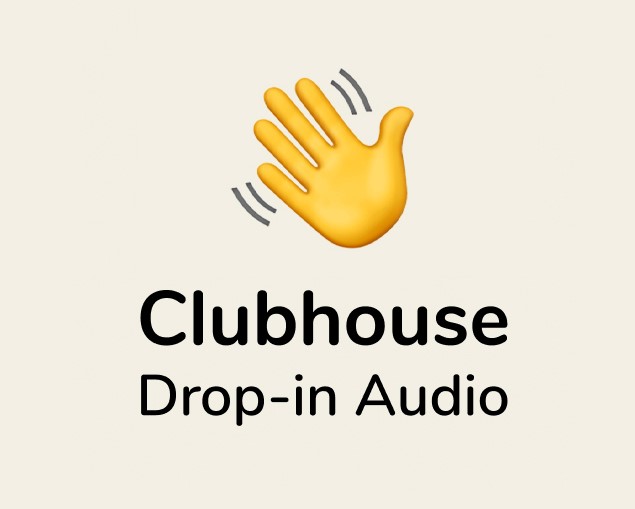With accusations of employment and treachery, Abdel Fattah Al-Sisi’s regime and its media received the Clubhouse app, which became very popular during the past few days after it attracted a large number of activists.
Media professionals close to the Egyptian regime launched an attack on the app, claiming it supported what they described as the “terrorist cells of the Brotherhood” and also said that it was a “danger to Egyptian national security.” This comes one day after al-Sisi considered that growing digital communication “represents a threat to governments and regimes and requires an attempt to control this communication by approving the necessary legislation for it, in the framework of regulating digital transactions and interaction for individuals and private entities.” This is not the first time al-Sisi attacked social media, as he used to mock it before warning about its content.
Clubhouse is a new audio platform that relies on a live broadcast, launched by entrepreneurs Paul Davison and Rohan Seth in April 2020, coinciding with the total closure in many countries of the world caused by the corona pandemic, which did not become popular until recent weeks. Clubhouse relies on voice communication, in contrast to the most popular social networking applications that rely primarily on writing. Downloading the app requires an invitation from a participant and allows you to join virtual rooms for audio discussions on various topics. The Clubhouse service prohibits the recording of a conversation without the express written permission of all concerned speakers.
The broadcaster who is close to the security services, Ahmed Moussa, launched the largest attack on the Clubhouse: “Thanks to God Almighty, we succeeded in penetrating a group of Brothers on the app.” Moussa pointed out that he recorded “the talks between them, I have their planning and their meetings with me, but I will not present it.”
The second arm that participated in the attack on the application was the broadcaster Aya Abdel Rahman, who described the application as “more dangerous than just an application because the truth is that it contains extremist and inciting ideas from the Shaytan group (the Brotherhood).” And she continued, “We found some people there who broadcast inciting ideas for brainwashing.” Abdel Rahman concluded her inflammatory paragraph by saying: “It is your right to tell you to take your caution, because the topic is not as simple as this, because they may put poison in honey because they have failed on other social networking sites.”
Al Jazeera correspondent in Washington, Amr Hassan, commented that “the application has allowed members of all Egyptian political currents to have a dialogue with each other and overcome political differences through face-to-face discussion.” Activist Asma Khairy also confirmed that the application allowed her to have a dialogue with politically different people, including those who support al-Sisi. Political activist Ali Khafaji expressed his surprise at the Egyptian regime’s attempt to stifle freedoms and prevent young people from having discussions about their issues and various walks of life. Khafaji expressed his happiness with the ability to communicate with colleagues he had not been able to see for a long time. As for broadcaster Osama Gaweesh, he said that the Egyptian regime’s attempts to control the app are absurd, as it has become difficult to control public space in 2021. But Munir Adeeb, a researcher in the affairs of Islamic movements, said that the danger of such applications is that some use them to communicate with each other for the purpose of carrying out “terrorist operations” inside Egypt, as he claimed. Adeeb explained that ISIS members are communicating with each other through the application Telegram, which threatens countries’ security.
The Egyptian media attack on Clubhouse sparked widespread mockery on social media platforms.Amr Magdy, a researcher with Human Rights Watch, said sarcastically: “The whole planet is already working to serve as a back door for plots against Egypt.” Researcher Saif Al-Islam Eid quipped: “It’s a week late, Samsung is always late,” referring to the security’s instructions for broadcasters. Activist Sarah al-Sharif wrote: “Ahmed Moussa talks about Clubhouse and says we hacked the application, and terrorist groups use it … and it is clear that they will hand them over to the iPhone from today!”
The attack by the media arms on Clubhouse was not that different from al-Sisi’s repeated attack on social media users. Al-Sisi did not forget that the 25 January 2011 revolution was sparked by Facebook. The lesson the regime learned after Mubarak’s ouster is the need to control all media outlets, including social media.
In a meeting with Egyptian community representatives, al-Sisi threatened to allocate two “army battalions” to control Egypt’s internet networks. Al-Sisi always refers to what he calls “fourth-generation wars,” warning against the control of intelligence agencies and terrorist organisations over cyberspace, calling for the formation of a “national committee to legalise the use of social media.”
Al-Sisi tightened his grip on the traditional media in Egypt. The incident “sent from a Samsung device” (a broadcaster read it after the news) became an example of the lack of effort to send instructions from the security services to broadcasters live. Still, social media remained “out of control.” Al-Sisi expressed his anger in one of his meetings in 2019 when he said that the Egyptians responded to his efforts to save them from what he called “want” by launching the hashtag “Leave O Sisi” on social media platforms.





Recent Comments